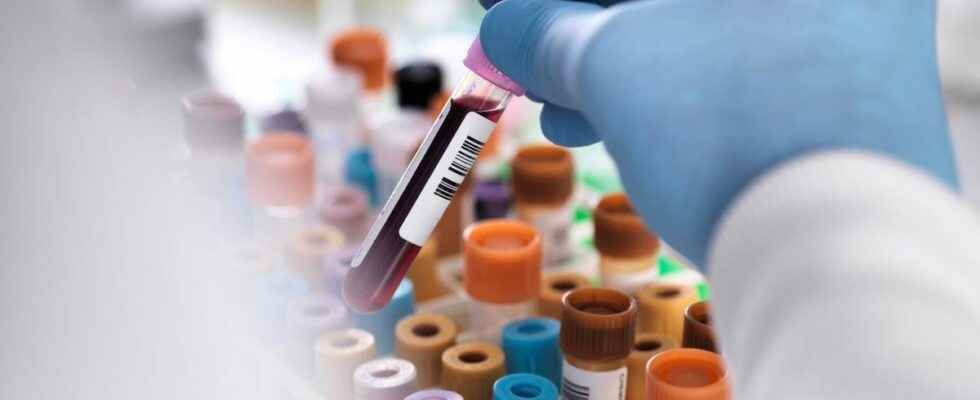Published on
Updated
Reading 3 mins.
According to a promising clinical trial, a new blood test would obtain more than 80% success in the detection of liver cancers. A major step forward in the fight against this disease which has no symptoms.
While liver cancer is one of the leading causes of cancer death worldwide, a team from the Medical University of Baltimore has transposed an existing blood test examining DNA fragments by Artificial Intelligence into liver cancer. lung, to see if it could detect liver cancer as well. The results look promising. Their findings are published in the latest CancerDiscovery.
A test already known for lung cancer
The blood test in question is not unknown to researchers. Called DELFI technology (for DNA evaluation of fragments for early interception), it had proven itself in the detection of lung cancer, not long ago, in 2021 only.
The technology in question detects fragmentation changes among the DNA of cancer cells released into the bloodstream, known as cell-free DNA (cfDNA). After demonstrating its relevance against lung cancer, the team wanted to know if it was also effective against liver cancer, a cancer that is difficult to detect as it develops so slowly. To conduct their work, the researchers used this DELFI on blood plasma samples obtained from 724 people in the United States, European Union and Hong Kong. The goal ? Detect hepatocellular cancer (HCC), a type of liver cancer.
80% of liver cancers detected in the trial
In concrete terms, the DELFI technology made it possible to detect liver cancers at their earliest stages and more than 80% of cancers were thus detected in the trial. “This new blood test can double the number of cases of liver cancer detected, compared to the standard blood test available, and increase its early detection“said Amy Kim, assistant professor of medicine at Johns Hopkins University School of Medicine and co-lead author of the study.
This type of advance also benefits other forms of cancer: another blood test has been launched to detect the risks of breast cancer relapse even before a scanner does. The researchers say the next steps include validating this approach through larger clinical studies.
Cancer screening in DNA: an applicable tool in the years to come?
For Dr. Ivan Pourmir, oncologist and researcher in immunology, this kind of trial represents hope in the treatment of certain cancers, in many patients.
“Very early detection of all cancers for all is not necessarily desirable. This must above all raise the question of whether it improves life expectancy and quality of life. For some cancers, this is not helpful. But in liver cancer, which comes back more readily in people who have a chronic pathology of the liver, because of hepatitis, alcoholic cirrhosis, chronic inflammation of the liver linked to obesity, when the cancer occurs , it is very dangerous and difficult to remove. Very early detection would be a real help” he confirms.
The researcher also sees several applications that are not mentioned in the essay:
- The biomarker tools identified in the blood test (tumor DNA) are very practical, and much less invasive than biopsies for the patient and carry less risk of complications;
- This type of screening would also be useful for monitoring the ongoing effectiveness of a treatment, it would suffice to monitor the amount of tumor DNA to verify the benefit of early treatment, to be reassured by confirming that the tumor DNA is decreasing or otherwise change treatment quickly in the event of a rate that does not change or increases;
- Finally, the oncologist foresees a final useful application for diagnosing patients who would relapse after a treatment that was hoped to be lasting.
“As for the feasibility, I have good hopes that in the most equipped countries, this type of prevention will be possible in the years to come. To be validated already for liver cancer and independently on different types of cancer (which do not all have the same DNA abnormalities). In particular pancreatic cancer, which would benefit from being detected very early” he concludes.
